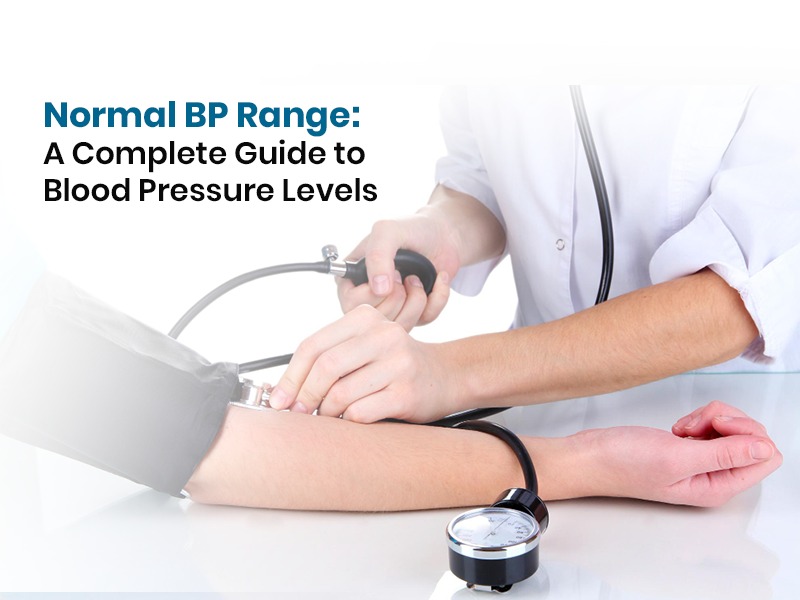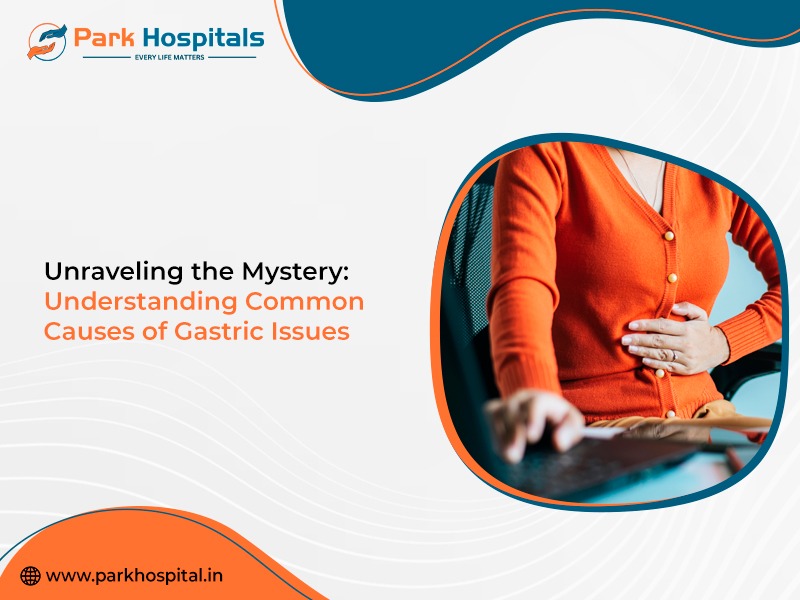Unexplained weight loss happens when someone loses a noticeable amount of body weight without altering their eating habits, physical activity, or daily routine. This type of weight loss is not intentional and may indicate an underlying health condition that needs prompt medical evaluation. Even a small but consistent drop in body weight without trying should not be ignored, as it may be linked to issues ranging from hormonal imbalances and infections to serious chronic diseases.
At Park Group of Hospitals, we are committed to providing expert medical care for individuals experiencing sudden or unexplained weight loss. Across north India, our presence spans Delhi, Gurugram (Sector 47, Palam Vihar, Sector 37D), Faridabad, Sonipat, Panipat, Karnal, Ambala, Patiala, Mohali, Bathinda, Behror, and Jaipur, our team of specialists ensures that patients receive accurate diagnosis and advanced treatment for weight-related concerns.
If you are experiencing unexplained weight loss, our doctors are available round the clock to help. To book an appointment, you can reach our 24x7 helpline at +91 99166 99166.
What is Unexplained Weight Loss?
Unexplained weight loss is a noticeable and unintentional drop in body weight without changes in diet, exercise, or daily habits. Medically, it is often defined as losing more than 5 percent of body weight within 6 to 12 months without effort. For example, a person weighing 70 kg losing 3.5 to 4 kg or more without trying may need medical evaluation. Unlike intentional weight loss, which results from diet or exercise, unexplained weight loss occurs without conscious effort.Why It Matters
Unexplained weight loss can be a sign of underlying health conditions, including:Metabolic disorders including hyperthyroidism
Long-term conditions such as diabetes, kidney disease, or Crohn’s disease
Infections such as tuberculosis
Cancers affecting metabolism and appetite
Mental health concerns like depression, anxiety, or stress
How It Differs from Normal Weight Loss
Intentional weight loss is planned through diet, exercise, or lifestyle programs
Temporary fluctuations may result from dehydration, illness, or short-term dietary changes
Unexplained weight loss continues despite normal eating and may be sudden or progressive
Who is at Risk?
Unexplained weight loss can occur in people of any age, though it is observed more frequently in the following groups:Older adults with reduced appetite, multiple illnesses, or medications
People with chronic diseases
Individuals with weakened immunity
Recognizing unexplained weight loss early is essential, as it can be the first sign of a serious condition. Early detection allows timely diagnosis and treatment, preventing complications.
Common Causes of Unexplained Weight Loss
Unexplained weight loss usually indicates an underlying issue, including medical conditions, metabolic disorders, infections, or psychological factors. Recognizing the causes helps in seeking timely medical care.1. Hyperthyroidism
Excess thyroid hormones speed up metabolism, causing rapid weight loss even without increased activity.Symptoms: Increased appetite, sweating, palpitations, irritability, sleep problems
Importance: Can lead to fatigue and muscle weakness if untreated
2. Diabetes
Uncontrolled diabetes forces the body to burn fat and muscle for energy, causing weight loss.Symptoms: Urinating more often than usual, feeling unusually thirsty, experiencing persistent tiredness, and having blurred vision
Importance: Losing weight without trying could indicate the early stages of diabetes
3. Cancer
Cancers can increase metabolism or reduce appetite, leading to unexplained weight lossSymptoms: Fatigue, loss of appetite, night sweats, pain, anemia.
Importance: Sometimes the first sign of stomach, lung, pancreas, or lymphoma cancers
4. Digestive Disorders
Conditions like Crohn’s disease, ulcerative colitis, or celiac disease affect nutrient absorption.Symptoms: Abdominal pain, diarrhea, bloating, fatigue
Importance: Can cause muscle wasting and weakness if untreated
5. Kidney Disease
A decrease in appetite combined with changes in metabolism can lead to a reduction in body weight.
Symptoms: Leg swelling, fatigue, high blood pressure, sleep difficulties
Importance: Weight loss may be one of the first visible signs
6. Tuberculosis (TB)
TB often causes continuous weight loss.Symptoms: Persistent cough, night sweats, fever, chest pain
Importance: Timely diagnosis is really critical as TB is common problem in India
7. Mental Health Issues
Depression, stress, and eating disorders can reduce appetite and nutrition.Symptoms: Low energy, social withdrawal, anxiety
Importance: Psychological causes are often overlooked but significant
8. Other Causes
Chronic infections, malabsorption syndromes, or medication side effects may also lead to unexplained weight loss.Since unexplained weight loss is typically a symptom, not a condition, early medical evaluation is essential to identify the cause and prevent complications.
Symptoms Associated with Sudden Weight Loss
Unexplained weight loss often comes with physical and emotional changes that help identify the underlying cause. Recognizing these warning signs early is crucial.1. Fatigue and Weakness
Constant tiredness occurs as the body loses nutrients, energy, and muscle mass, making daily activities difficult.2. Loss of Appetite
Reduced desire to eat can result from cancer, chronic infections, depression, or digestive disorders, increasing the risk of malnutrition.3. Muscle Wasting
Chronic conditions like cancer, advanced kidney disease, or malabsorption disorders may cause the body to break down muscle instead of fat, reducing strength and immunity.4. Night Sweats and Fever
Conditions such as tuberculosis or lymphoma may trigger persistent low-grade fever and night sweats alongside weight loss.5. Digestive Disturbances
Weight loss linked to digestive issues may include bloating, diarrhea, constipation, abdominal pain, and nutrient deficiency signs such as pale skin or brittle nails.6. Emotional and Mental Health Changes
Stress, anxiety, and depression can reduce appetite and disrupt sleep, creating a cycle of weight loss and fatigue.Immediate medical evaluation is necessary if sudden weight loss is accompanied by persistent fatigue, fever, night sweats, prolonged loss of appetite, rapid muscle wasting, or ongoing digestive problems, as these may indicate serious health conditions.
Rapid Weight Loss Causes vs. Gradual Loss
Unexplained weight loss can occur suddenly or gradually, and understanding the pattern helps identify the underlying condition.Rapid Weight Loss
This involves a noticeable drop in weight over weeks or months without effort.Causes: Hyperthyroidism, uncontrolled diabetes, severe infections like tuberculosis or HIV, and certain cancers
Symptoms: Fatigue, palpitations, excessive thirst, night sweats, loss of appetite
Importance: Rapid unexplained weight loss is a red flag and requires immediate medical attention
Gradual Weight Loss
Slow weight loss develops over months and may go unnoticed until weakness or clothes fit differently.Causes: Digestive disorders (Crohn’s disease, ulcerative colitis, celiac disease), chronic kidney disease, depression, or early-stage cancers
Symptoms: Fatigue, weakness, muscle wasting, reduced immunity
Importance: Signals chronic illness that needs ongoing management
When to See a Doctor
Occasional weight changes are normal, but unexplained weight loss without effort may signal an underlying medical condition. Early medical consultation can aid diagnosis and treatment.Warning Signs
Consult a doctor if symptoms are:Sudden or rapid weight loss
Persistent fatigue, weakness, or muscle wasting
Reduced appetite lasting more than two weeks
Night sweats, persistent fever, or unexplained cough
Ongoing digestive issues like diarrhea, bloating, or abdominal pain
Nutritional deficiency signs like hair loss, brittle nails, or pale skin
These signs may indicate serious conditions like diabetes, hyperthyroidism, cancer, Crohn’s disease, kidney disease, or tuberculosis.
Importance of Timely Checkup
Early evaluation helps identify causes before complications arise, detect cancers or infections in treatable stages, and correct nutritional imbalances.Why Early Consultation Matters
Prompt medical care allows doctors to run essential tests, create a tailored treatment plan, and provide nutritional therapy to restore strength.Diagnosis and Tests
When a patient experiences unexplained weight loss, doctors follow a step-by-step approach to identify the underlying cause.Medical History and Physical Examination
Doctors review the duration and amount of weight loss, changes in appetite or digestion, fatigue, fever, existing medical conditions, and stress or lifestyle changes. A physical exam may reveal signs like muscle wasting, swelling, or enlarged glands.Blood Tests
Common tests include:Blood test for weight loss to check for anemia or infection through complete blood count (CBC)
Blood sugar tests for diabetes
Thyroid function tests for hyperthyroidism
Kidney and liver function tests
Vitamin and nutrient levels
Infection screening for tuberculosis or HIV
Imaging and Diagnostic Scans
If needed, doctors may recommend X-rays, CT scans, ultrasound, MRI, or endoscopy/colonoscopy to examine organs and detect digestive or cancer-related issues.Specialized Evaluations
Referrals may include endocrinologists, gastroenterologists, oncologists, or nephrologists.A combination of history, exams, lab tests, and imaging helps uncover the cause of unexplained weight loss, allowing timely treatment.
Treatment and Management of Unexplained Weight Loss
The treatment of unexplained weight loss depends largely on its underlying cause. Since this condition can be a sign of serious medical problems, consulting a healthcare provider is the first and most important step. At Park Group of Hospitals, specialists from multiple departments including endocrinology, oncology, cardiology, gastroenterology, and internal medicine work together to design personalized treatment plans.
Medical Treatments
Hormonal and Thyroid Disorders: If the weight loss is linked to hyperthyroidism, treatment may involve antithyroid medications, radioiodine therapy, or surgery in some cases. Hormone replacement or balancing therapies are provided under expert supervision.
Diabetes and Metabolic Conditions: Unexplained weight loss caused by uncontrolled diabetes is managed with insulin regulation, oral medications, and structured nutritional therapy.
Infections: When infections such as tuberculosis or HIV are the root cause, targeted antibiotic or antiviral therapy is prescribed to control the infection and support weight gain.
Cancer-Related Care: Weight loss is often one of the early signs of cancer. Park Hospital provides advanced oncology services including chemotherapy, radiation therapy, surgery, and immunotherapy, supported by nutrition and palliative care teams.
Gastrointestinal and Malabsorption Issues: Treatments may include medications for ulcers, inflammatory bowel disease management, or surgical interventions when needed.
Lifestyle and Supportive Care
Alongside medical management, supportive measures help patients regain weight and strength:
Nutritional Therapy: Dietitians at Park Hospital create customized meal plans high in protein, healthy fats, vitamins, and minerals to restore nutritional balance.
Physical Activity: Moderate exercise under medical supervision helps rebuild muscle mass and improve appetite.
Psychological Support: Mental health plays a big role in unexplained weight changes. Counseling and stress management therapies are provided to address conditions like depression and anxiety.
Monitoring and Follow-Up: Regular health check-ups, body weight tracking, and blood tests ensure that the treatment plan is effective and adjusted as needed.
At Park Hospitals, our integrated care approach ensures patients not only receive advanced treatments but also the right nutritional and psychological support to recover fully.
Prevention and Healthy Practices
While not every case of unexplained weight loss can be prevented, adopting healthy habits plays a crucial role in reducing risks and maintaining a strong body. Prevention focuses on building a lifestyle that supports stable body weight, strengthens immunity, and promotes overall well-being.
A balanced diet with proteins, whole grains, fruits, vegetables, and healthy fats supports stable weight and overall nutrition. Not eating regular meals or depending on packaged and processed foods may result in a lack of essential nutrients, which can cause unintentional weight loss and constant tiredness. Drinking adequate water throughout the day also helps maintain digestion and energy balance.
Regular physical activity is another vital factor. Simple practices such as walking, yoga, or light exercise improve metabolism, regulate appetite, and support healthy weight. At the same time, overexercising or following extreme workout routines should be avoided, as they can lead to excessive calorie burn and unintended weight reduction.
Stress management is equally important. Long-term stress can disturb hormone levels, leading to appetite loss or unhealthy eating patterns. Techniques like meditation, deep breathing exercises, and adequate sleep are powerful in keeping both the mind and body healthy.
Preventive health check-ups at reputed hospitals like Park Hospitals can identify underlying medical issues at an early stage. Screening for conditions such as thyroid disease, diabetes, or gastrointestinal problems allows timely treatment and helps prevent unexplained weight loss from progressing.
By following these simple but effective practices, individuals can significantly lower the chances of sudden weight loss and enjoy a healthier, more balanced life.
Conclusion
Unexplained weight loss is a signal that should never be ignored. Whether it occurs rapidly or gradually, it can indicate underlying health issues ranging from hormonal imbalances and infections to chronic diseases like diabetes, kidney disorders, Crohn’s disease, or even cancer. Early recognition, timely diagnosis, and proper treatment are essential to prevent complications and support recovery.
At Park Group of Hospitals, our multidisciplinary teams provide comprehensive care, combining expert medical treatment with nutritional therapy, lifestyle guidance, and psychological support. Patients receive personalized care plans and advanced diagnostic evaluation to address the root causes of weight loss effectively.
If you or your loved one are experiencing unexplained weight loss, seeking medical attention promptly can ensure better health outcomes and a faster recovery.
Frequently Asked Questions on Unexplained weight loss
What causes unexplained weight loss?
Unexplained weight loss can occur due to a variety of reasons, including hyperthyroidism, diabetes, cancer, Crohn’s disease, kidney disease, tuberculosis, infections, or stress and mental health issues. Rapid or gradual loss without effort should always be evaluated by a doctor.
What are the warning signs of sudden weight loss?
Warning signs include fatigue, weakness, muscle wasting, loss of appetite, persistent fever, night sweats, and digestive issues. These symptoms indicate that underlying medical conditions may need urgent attention.
How is unexplained weight loss diagnosed?
Doctors use a combination of medical history, physical examination, blood tests for weight loss, imaging scans, and specialist evaluations to determine the underlying cause. Early diagnosis ensures timely treatment and better recovery outcomes.
What treatments are available for unexplained weight loss?
Treatment depends on the root cause. It may include medications for thyroid disorders or diabetes, antibiotics for infections, cancer therapies, or treatments for digestive diseases. Additionally, nutritional therapy, dietary supplements, and lifestyle adjustments support weight gain and overall health.
Can stress or mental health issues cause weight loss without trying?
Yes, conditions like depression, anxiety, or prolonged stress can reduce appetite, disrupt eating habits, and contribute to weight loss without trying. Counseling and therapy alongside medical care often help in recovery.


























